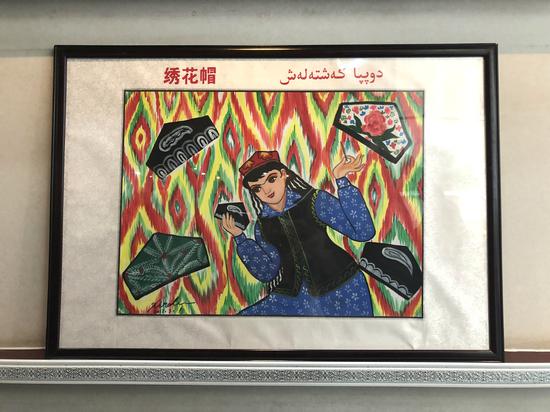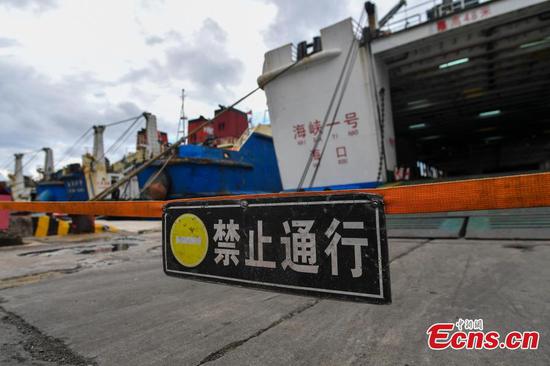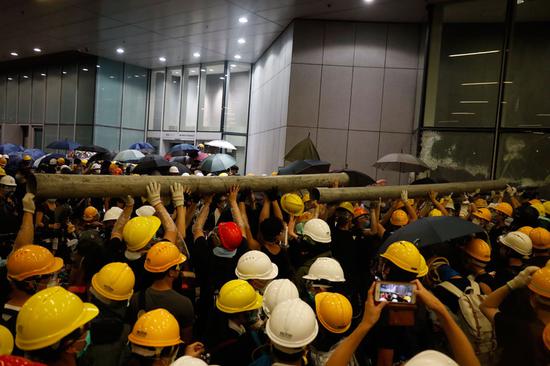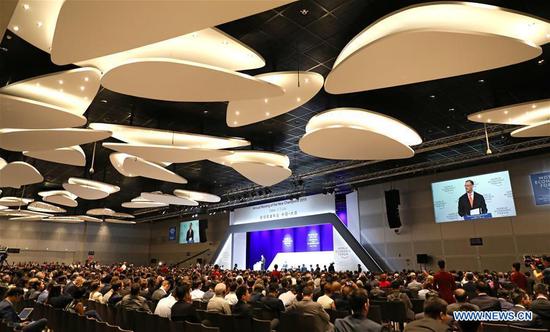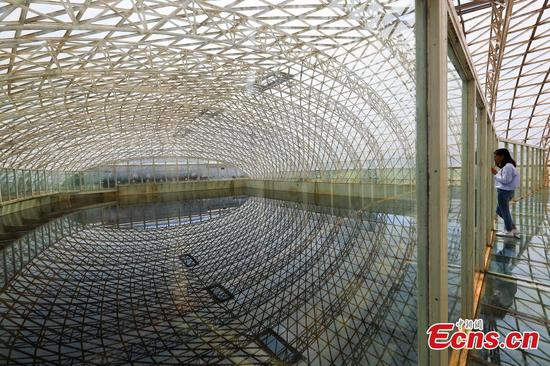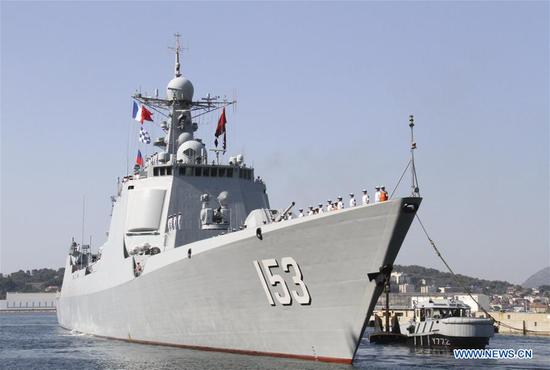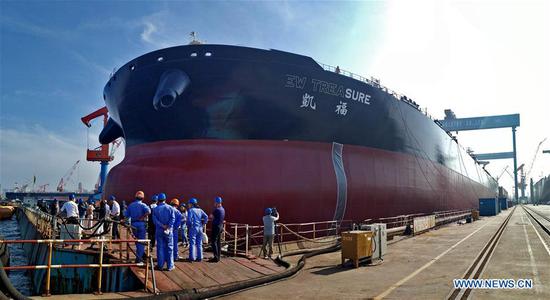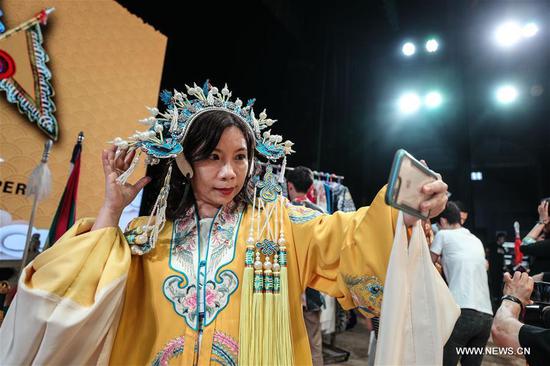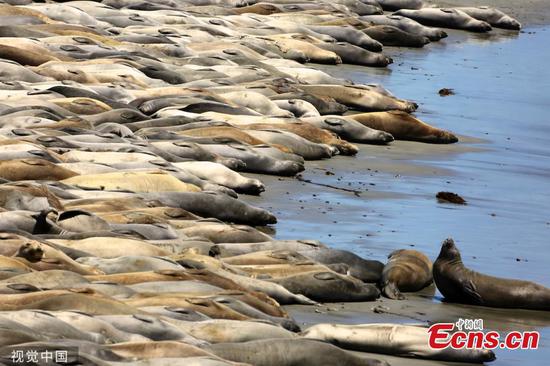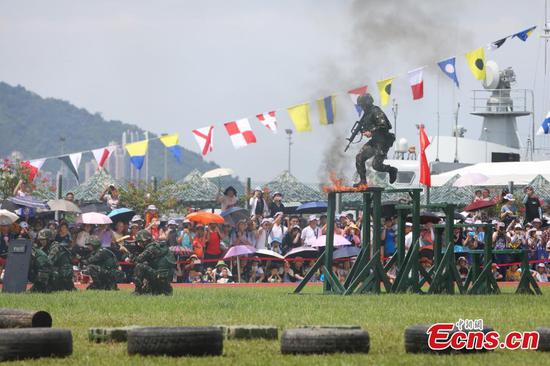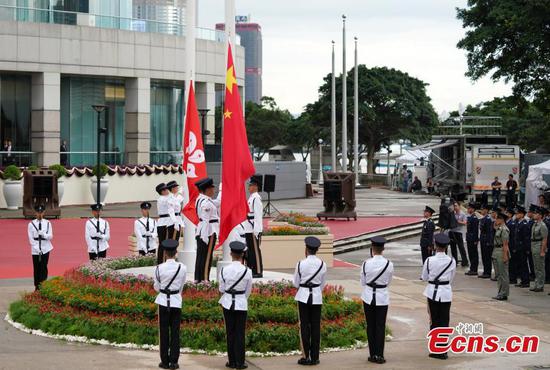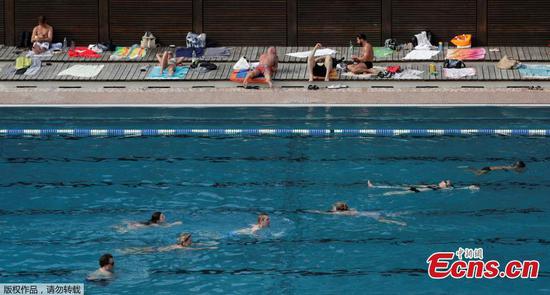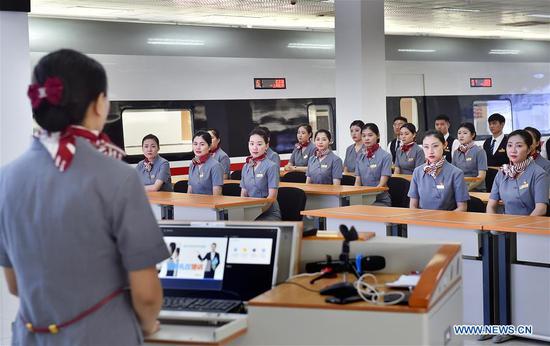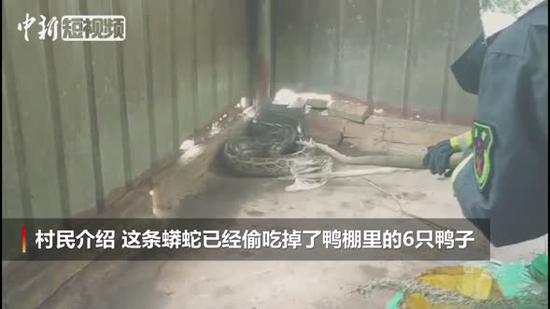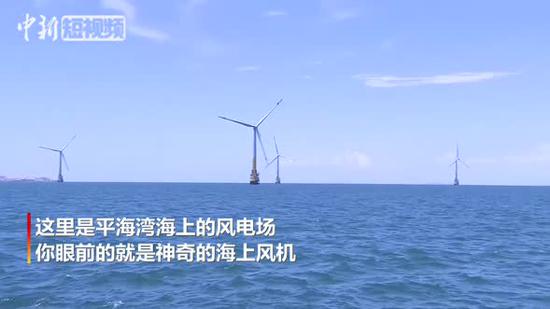State Councilor and Foreign Minister Wang Yi called on the United States and the Democratic People's Republic of Korea to translate the political will of the two countries' leaders in denuclearizing the Korean Peninsula into tangible progress through dialogue and negotiations.
Wang made the remark at a joint news conference in Beijing on Tuesday with visiting Mexican Foreign Minister Marcelo Ebrard.
Noting that various parties have developed a new round of positive interactions centered around the Korean Peninsula issue, Wang said President Xi Jinping and the top leader of the DPRK, Kim Jong-un, agreed to seek a political settlement of the peninsula's nuclear issue during Xi's recent state visit to the DPRK days ahead of his trip to Japan to attend the G20 Summit.
During his meeting with U.S. President Donald Trump in Osaka, Japan, Xi briefed his U.S. counterpart on China's position on the peninsula issue, and called on Washington to be flexible and meet Pyongyang halfway, ease sanctions on the DPRK at a proper time and find solutions to their respective concerns through dialogue.
Wang added that Xi also exchanged views with Republic of Korea President Moon Jae-in on the peninsula issue during their meeting in Osaka, Japan, and that China supports the ROK in making continued efforts regarding the issue.
He described the third summit between Trump and Kim at the border village of Panmunjom in the Demilitarized Zone on Sunday as a move that meets the aspirations of the international community and also conforms to the trend of the times.
Their meeting demonstrates they both remain committed to seeking consensus through dialogue and negotiations, Wang said, calling it an important step in the right direction.
"China welcomes and supports the meeting, and looks forward to more good news from the Korean Peninsula," he said.
Saying hostility and mutual suspicions arising from a Cold War mentality have curbed the denuclearization process and the peace and stability of the peninsula, Wang urged the U.S. and the DPRK to work along with relevant parties to make concerted efforts to denuclearize the peninsula.
He called for stepping up the process of a political settlement of the issue with synchronized steps in a phased manner in order to realize a long-lasting peace and stability on the peninsula.
Regarding the Venezuela issue, Wang said that both China and Mexico agreed that it is the South American country's domestic affair and should be resolved by the Venezuelan people through dialogue and consultations.
The international community should not directly interfere in Venezuela's domestic affairs, and instead, should shun unilateral sanctions and be opposed to military intervention, he said, adding that the government of Venezuela and the opposition should be encouraged to find solutions to resolve their differences in a peaceful manner within the framework of the country's Constitution.
Ebrard said his country is firmly opposed to outside intervention in the Venezuela issue, and added that the future of Venezuela should be independently and peacefully decided by its people.
During their talks, Wang and Ebrard agreed to press ahead with the comprehensive strategic partnership between the two countries and expand pragmatic cooperation.













